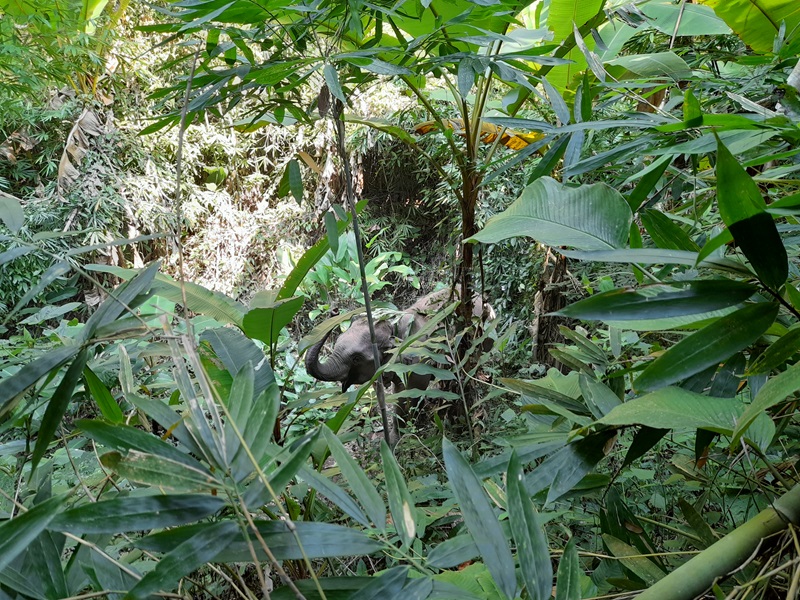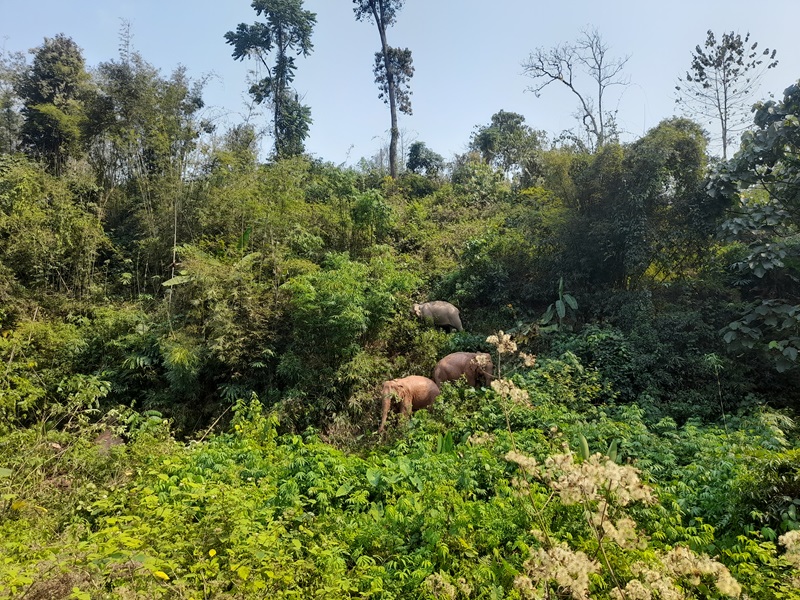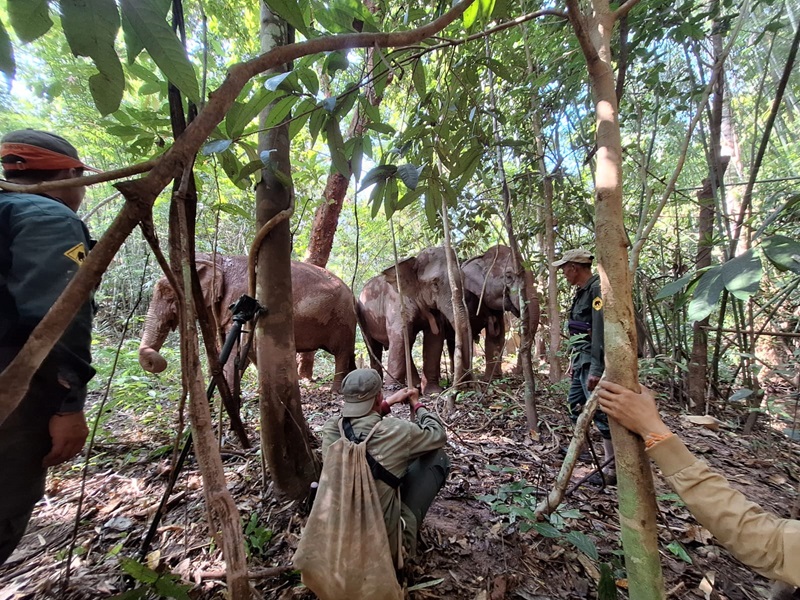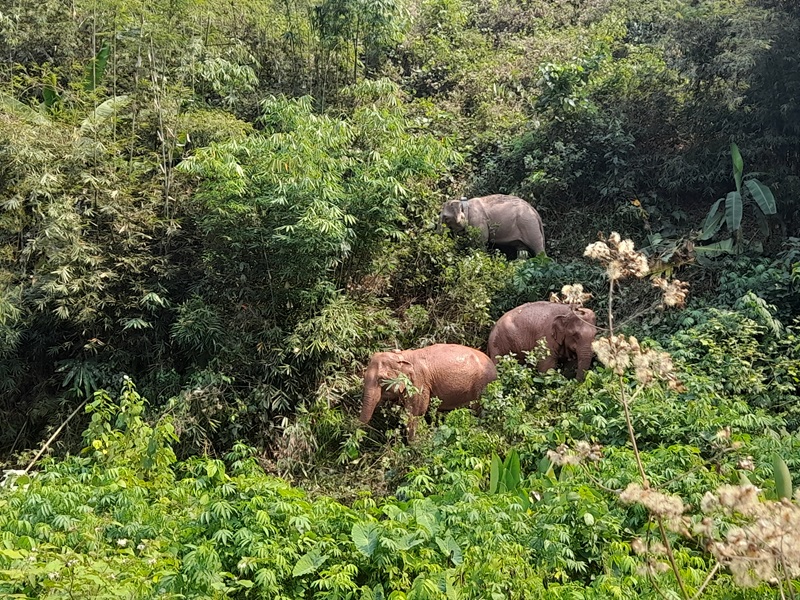Beautiful Mae Mah continues to thrive in the lush forests of the Nam Pouy National Protected Area in Laos

Mae Mah in the dense vegetation
Monitored closely by the dedicated elephant trackers from the Elephant Conservation Center (ECC), Mae Mah and her three companions who she was released with including the young bull Dor Khoun Mueang, remain healthy, social, and strong.
The group spends most of their time together, showing no signs of stress or discomfort. Mae Mah has played a protective, maternal role for Dor Khoun Mueang, behaving very much like a real mother during his upbringing. It is fascinating to observe how Mae Mah allows Dor Khoun Mueang to venture off and explore on his own, as this seems to be a natural process for her. While he is exploring independently, the strong bond between Mae Mah and Mae Noy remains evident, as they are consistently observed staying near each other.
Recently, Mae Mah and Mae Noy have been seen near other captive females but do not seem to spend significant time with them. With Dor Khoun Mueang spending less time with the group, it will be interesting to see if the remaining females in the small herd become more open to exploring new social companions—whether with other captive-born elephants or wild individuals.
The ECC team conducted two comprehensive health checks on the released elephants, one in July and one in September. These checks were led by Dr. Moul, Dr. Pavina, and Mr. Kan, who provided vital care, including:
- Annual Tetanus Vaccinations: To protect the elephants from infections.
- Deworming Treatments: Parasite analysis revealed a mix of parasites requiring targeted treatment. Thankfully, the overall parasite load was much lower than that of the elephants at the ECC, likely due to the larger roaming area of the released group.
- Body Condition Assessments: All elephants were found to have excellent body condition, indicating they are thriving in their natural environment.
- Full Blood Tests: No abnormalities were detected, confirming their overall health.
During a close inspection, the team found a small piece of glass embedded in the foot of Mae Boun Mi Ngay. Fortunately, it had not penetrated deeply, and the team was able to remove it and disinfect the area thoroughly. This incident underscores the importance of annual tetanus vaccinations and regular health inspections for released elephants.
Your support makes this vital work possible. Thanks to you, Mae Mah and her companions are not just surviving—they are thriving. We are deeply grateful for your continued commitment to protecting these magnificent animals and ensuring their future in the wild.
Thank you for being a part of this incredible journey!



